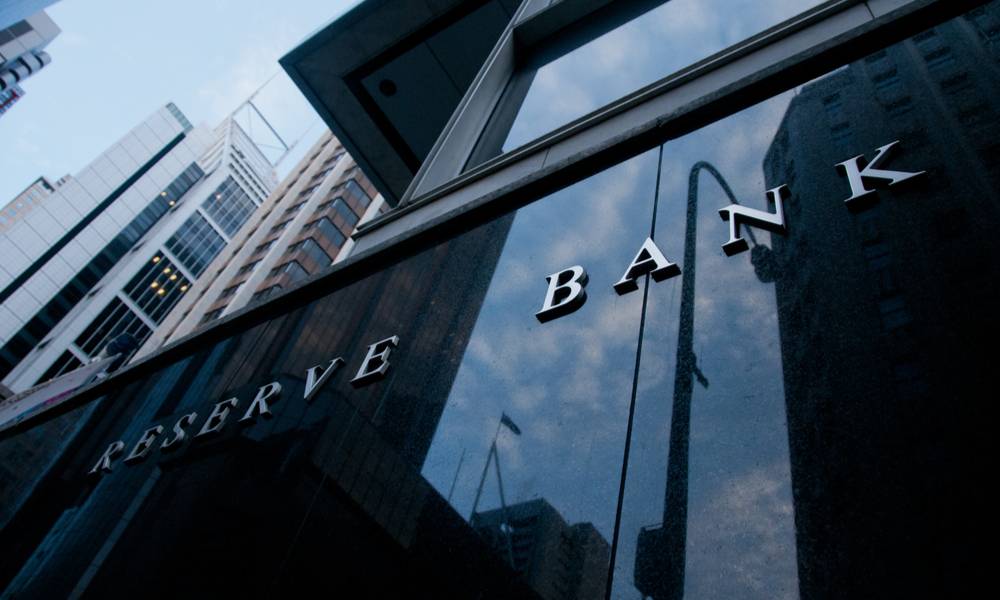Learning from crises: six critical leadership lessons
Leaders need to be authentic, courageous people who understand the benefits of continuous learning, how to adapt and align their values with purpose, and receive honest feedback in order to successfully lead people through crises, according to Alexis George, Deputy CEO of ANZ
Always striving to be and do the best you can on any particular day, rather than striving for perfection whatever the cost, has been a key source of inspiration for Alexis George, Deputy CEO & Group Executive of Wealth Australia at ANZ. Ms George recently shared her perspectives on leadership at the AGSM Director’s Lunch hosted by Professor Nick Wailes, Director AGSM and Deputy Dean UNSW Business School. The virtual lunch was organised for current AGSM @ UNSW Business School MBA students and alumni.
Ms George, a UNSW Sydney alumna, said the most satisfying part of her 25-year career in financial services has been leading teams and watching people grow and progress, and this has made her passionate about the true value of good leadership. She has led people during the Global Financial Crisis (GFC), through the Banking Royal Commission, and more recently through the COVID-19 pandemic.
Ms George, who studied a Bachelor of Commerce and Accounting at UNSW Sydney, is also an alumna of the AGSM @ UNSW Business School Executive MBA. She started her career as a senior manager at PwC in Sydney and London after completing her undergraduate degree in 1985. She has since held senior executive roles at BT, BNP Paribas and ING. In 2011, she first took on the position of Global Managing Director of Insurance at ANZ Wealth, and today she is Deputy CEO of ANZ, responsible for assisting the CEO with strategy and direction as well as the migration of its wealth businesses to the new owners, offshore service centres and banking services business.
Six lessons in leadership
Ms George spent a decade working for ING in several countries around the world. She first moved to Prague in the Czech Republic in 2008, taking on the role of CEO of Insurance and Direct Banking for ING Insurance in Czech and Slovakia. “I’m a bit of a risk-taker. I had two young kids, a husband and two dogs,” she said.
Nevertheless, the opportunity to move and work abroad was too good to refuse, and she ended up moving her family to Prague for four years. “I learned so much about myself there as a leader; I learned so much about being adaptable in a culture that is so completely different from what we experienced here."

But it wasn’t just working in another country that shaped her leadership experiences; it was also navigating a banking business during the GFC. “That experience has stood me in really good stead for what we’re going through now (COVID-19),” she said.
Indeed, throughout her career, Ms George has worked through several tough times in financial services. “Probably one of the most momentous events in the last 10 years was the Royal Commission into Misconduct in the Banking, Superannuation and Financial Services Industry,” she said.
“The Royal Commission for many people within the organisation I worked for and for me, was just a real eye-opener and I’ve led our response to the Royal Commission as an organisation because… I wanted to make real cultural change,” she explained.
But more recently, Ms George led ANZ’s response to the COVID-19 pandemic, “because I’ve been through that and knew what to expect in terms of the economic scenario,” she said. But what was different this time around was having to move 45,000 people across 33 countries to working from home. Apart from the bank branches, about 90 per cent of ANZ's global workforce is currently working from home.
So what lessons has she learned, and what has helped her lead people successfully through some of these significant changes?
1. Be authentic
One of her first critical lessons in leadership was the ability to be authentic, and this quality has helped her recognise her weaknesses to better manage and supplement them. For example, she said: “I am shocking at detail, which is not good given my training, so I always want to have people around that can dot every I and cross every T."

Being authentic also leads to trust and respect. “Being authentic is critical as well because, particularly as you get more senior, you are watched all the time by staff – little things you do have such an impact that if you can’t be yourself, I think it’s really hard to maintain that character forever,” she said.
As well as being authentic, she said it is crucial for a leader never to ask people to do something they are not prepared to do themselves. “And I don’t say you have to do it, because, in my role, I can’t do everything I asked people to do, but they always know that I would do it if that were required. And for me, that’s important in driving that loyalty and trust between everyone,” she said.
2. Adapt
Living in other countries shaped Ms George’s leadership experiences, and it forced her to question and refine the kind of leader she wanted to be. It also made her appreciate how quickly a leader has to adapt to a new culture or situation. Importantly, she said leaders now live in a world where everything is changing so fast: the digital environment; the use of data; social media; technologies around AI and machine learning etc., "these are all changing so quickly, and so leaders will have to adapt", she said.
“I don’t profess to be an expert in any of those [but] I know what they potentially are. And it annoys me when I see senior leaders stand up and say, ‘Oh, I don’t go near social media’ etc., but that is what our customers are doing. As a result, I think we need to understand those tools and understand how people are communicating,” she said.
3. Have courage
Another important lesson was building up the courage to make tough decisions, especially having experienced several large company restructures and the heavy impact of the GFC while working in Europe. Ms George has also led ANZ’s $4 billion wealth divestment program, including the sale of the life insurance and superannuation businesses to Zurich and IOOF, and continues to oversee the complex process of separating and migrating the systems and data that support these businesses so they can operate independently of ANZ.

And having to make tough decisions often means that while you might be respected as a leader within your organisation, you might not always be well-liked, explained Ms George. “And I am prepared to step up and make those decisions and communicate things that maybe aren’t the nicest things to do... fronting up and doing it quickly, I think is important,” she said.
Leaders also need the courage to take risks in order to grow their own careers, when it comes time to take new jobs or roles that will challenge them and help them grow. “I always say to people, if you’re taking an opportunity where you have no level of discomfort, it’s not the right one,” said Ms George.
4. Keep learning
We’re in a world where it’s essential to have diverse skills and to learn new things, so it is vital for leaders to be continually learning. But this doesn’t always have to be formal training. “I think nowadays it’s easy to access a lot of information in bite-sized chunks or in chunks that suit your lifestyle. But I guess we always have to be continuously learning and that’s what drives me to be honest,” said Ms George.
And never underestimate the importance of having good mentors and sponsors. "I've had two most amazing sponsors and mentors in my life, one at BT and one at ING, that I'm still in contact with today," said Ms George. Mentors that act as sounding boards, people who believe in you but can give you "space to make mistakes", are incredibly important in shaping your experience as a leader, she said.
"And I think finding those people happens naturally and organically; you often can't go and seek them out, but it is really important to have those kinds of people in your life."

5. Consistency is key
There is nothing worse than an inconsistent leader, said Ms George. So if you’re going to be a bad leader, you might as well be a bad leader consistently; then at least people know what to expect, she added. “It’s those people where you don’t know what to expect, you don’t know what they want, that I think is really annoying and [make it] really hard to do your best job,” she said.
6. Align with your values
Finally, Ms George said the culture of the company you work for is essential in adding to your growth as a leader, so making sure you align with that company from a purpose and values perspective is vital. And as you look to new opportunities, it is essential that you’re being challenged and adding to your skill-set at an organisation that aligns with your values.
“We’re all smart. We can all learn things, but I think it’s important to push yourself out of that comfort zone. I think it’s important to have colleagues and people reporting to you who are willing to be direct with you as well, and that’s always a culture I try to encourage in being direct with them about things I need to improve and things they’re doing well," she said.
Click here to find out more about AGSM @ UNSW Business School, or contact Professor Nick Wailes, Director AGSM and Deputy Dean at UNSW Business School directly.
